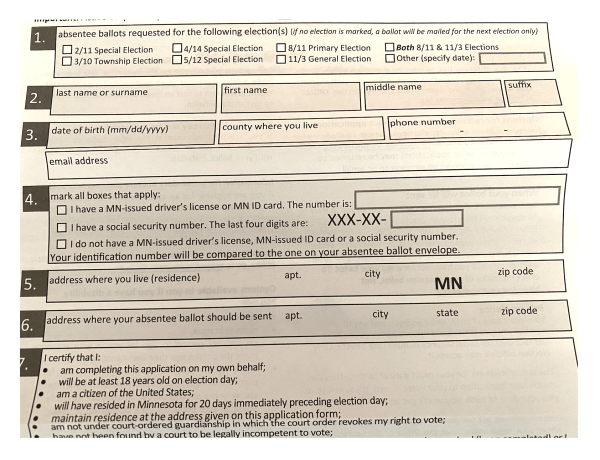Minnesota, like a great many other states, participated in our great national mail-in voting experiment during last fall’s elections. And like a great many other states – either through Democrat lawsuit or Democrat rule-making – it eliminated meaningful ballot security. In Minnesota’s case, this meant removing both voter identification and signature witnessing for first-time mail-in voters. Combined with our country’s notoriously sloppy voter rolls, the net result was a system where it was virtually impossible to be sure that the ballot being returned was actually voted by the person who allegedly signed it.

While the presidential race wasn’t particularly close, a number of state legislative races were decided by extremely close margins, enough races to potentially have shifted the balance of power in the state House of Representatives. But the forensic work required to track down potentially fraudulent votes is enormous, certainly impossible between election day and the vote’s certification. It’s unlikely that we’ll ever know the total number of ballots fraudulently cast, and now those voters are part of the mail-in system.
In order to get things back under control, a Republican state senator has proposed that the state issue a specific photo ID to be used for voting. The ID would be issued for free to those who can’t afford it. Such an ID would also help to keep the voting rolls cleaned up, since it would be tied specifically to voting, unlike a drivers license or a Social Security card.
The senator proposing the bill also notes that it would help restore some faith in the voting system. No doubt this is true, although it would be more true if the Democrats hadn’t fought tooth and nail to derail even legitimate inquiries into voting irregularities in last year’s elections.
All of this proved too much for Vermont’s secretary of state, Jim Condos, who tweeted out the following:
Apparently, requiring that voters prove that they are who they say they are does “little” but suppress their votes. Note also that Senator Newman doesn’t allege that there was fraud, only that many people believe there was. Without any sort of long-term follow-up, given the lax rules in Minnesota, it’s hard to blame them for being suspicious. But Condos does, of course.
It’s unclear exactly what Condos finds “not acceptable.” Is the assertion of fraud, which nobody has made? Is it the “suppression” of eligible voters, which would in no way happen under the proposed law? It’s hard to tell.
But then, what business does the Vermont secretary of state have expounding on proposed election law in Minnesota. One of the most effective complaints about the last-minute Texas election lawsuit was that it would violate federalism. Indeed, one of the effective arguments against the so-called National Popular Vote interstate compact is that electors in, say, Colorado, would find themselves bound by the results of rules their state had no hand in making.
Instead, we see the fruits of the Democrats’ Secretary of State project, where those in charge of administering our elections and ensuring their integrity use the system to undermine that integrity, and then complain that people have no confidence in the system.



